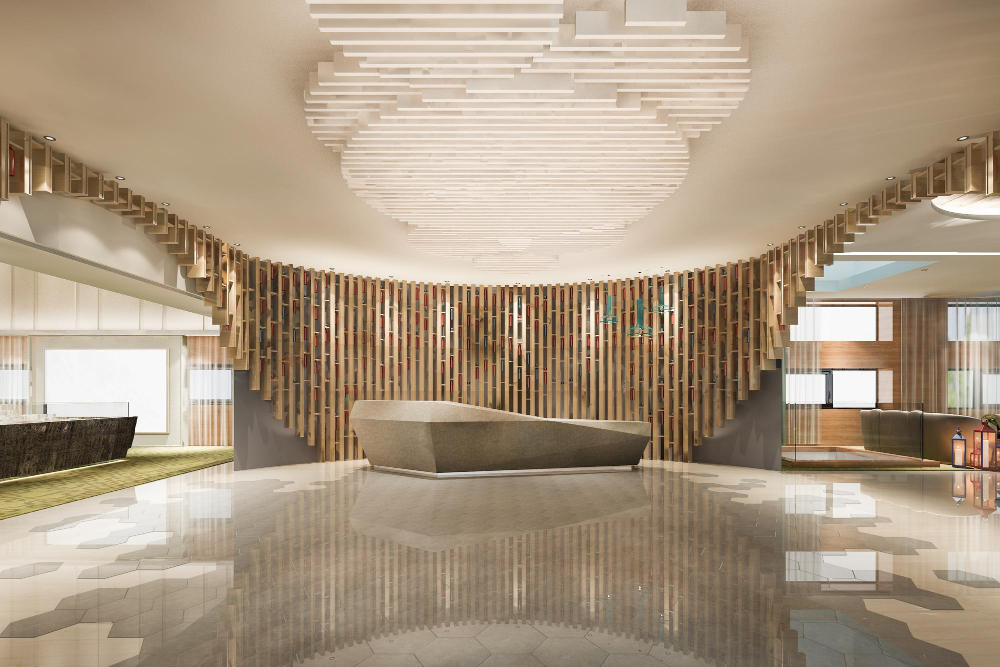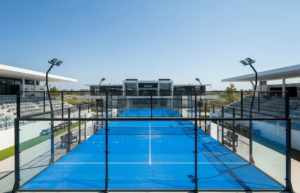

The hotel industry has always been at the forefront of providing guests with memorable experiences, catering to the needs of the modern traveler. One of the most essential aspects of creating a truly unique and welcoming environment lies in the harmonious blend of design and space.
A prime example of a hotel that has successfully achieved this balance is Flyrooms Madrid. They offer a variety of rooms, such as double, deluxe double, triple, quadruple, and fantastic spacious 2- and 3-bedroom flats. All their rooms have free Wi-Fi, a 43-50″ TV, spacious private bathrooms with shower and hairdryer, individual air-conditioning, and high-quality, comfortable mattresses and pillows.
Flyrooms Madrid’s rooms are the perfect place to relax for modern-day travellers, spacious and comfortable for different types of guests: business travellers, those looking for a break between flights, groups of friends, families with children, couples, or solo travellers who enjoy being alone.
In this article, we explore the role of design and space in hotels, looking at how designers balance aesthetics and functionality to create stunning, yet comfortable, interiors.
-
The Importance of Space
Space is a critical element in hotel design, as it plays a major role in providing comfort and a sense of luxury. By carefully considering spatial organization, designers can make even small rooms feel spacious and airy. This is particularly important in urban hotels, where space is often at a premium.
Several factors influence the perception of space in hotel rooms, including layout, furniture arrangement, and lighting. Optimizing these elements can create an inviting atmosphere that makes guests feel at home, despite being in a relatively confined area.
-
Integrating Functionality and Aesthetics
Hotel design must strike a balance between functionality and aesthetics. Rooms must not only be visually appealing, but they also need to serve the practical needs of guests. This includes providing ample storage, comfortable beds, and efficient lighting. Designers must consider how each element contributes to the overall experience, as well as how it complements the hotel’s theme and style.
-
Design Trends and Innovations
Hotel design is constantly evolving, as architects and designers look for innovative ways to create memorable experiences. Some current trends in hotel design include:
- Biophilic Design: Incorporating natural elements, such as plants and natural materials, into hotel interiors to create a more calming and soothing environment.
- Flexible Spaces: Designing multi-functional areas that can adapt to the needs of guests, such as transforming a lobby into a co-working space or a social gathering spot.
- Technology Integration: Incorporating advanced technology, such as smart room controls and automated check-in, to enhance guest experiences and streamline hotel operations.
-
The Role of Lighting
Lighting plays a vital role in defining the atmosphere of a hotel, as well as enhancing its design elements. A well-lit space can make a small room feel larger, create a sense of warmth, and highlight architectural features. Designers must consider both natural and artificial light sources, as well as the effect they will have on the overall ambiance of the space.
-
Creating Unique Experiences
In an increasingly competitive market, hotels must offer more than just a comfortable place to sleep. Designers are challenged to create unique experiences that set their establishments apart from the competition. This can be achieved through the use of local materials and artwork, incorporating elements of the hotel’s history or location, or by designing spaces that encourage social interaction and foster a sense of community.
Conclusion
The art of hotel design lies in the ability to blend functionality and aesthetics, creating spaces that are both practical and visually appealing. By thoughtfully considering spatial organization, lighting, and design trends, architects and designers can create hotels that offer guests unforgettable experiences and a true sense of escape.







